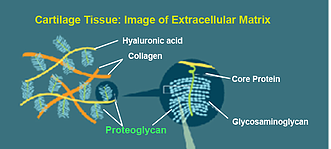 Doctors Mega Proteoglycan
Doctors Mega Proteoglycan
To purchase products you should go to the manufacturer’s website: www.makiselifeup.com
Apply coupon code for discount: 10med5
10 MED has long term cooperation with Makise Lifeup Laboratory.
And we are happy to offer our customers special conditions for purchase of Makise Lifeup supplements.
[Salmon’s nose heal your joints and skin.] Does this sound ridiculous? Maybe so; but Japanese researchers of Hirosaki University have scientifically proven that the nose of a salmon will heal your joints and skin. For more than 1000 years, the head of a salmon was served to celebrate the New Year as a delicacy in the northern provinces of Japan including Hokkaido, Aomori, Iwate, and Niigata Prefecture. This specialty is called Hizu Namasu. The head of a raw salmon fish is thinly-sliced, soaked in salt and vinegar, and then mixed with julienned Japanese radish with flavoring material. Hizu in Japanese means ice head. Salmon’s head cartilage parts are named as such because they are transparent like ice.
have scientifically proven that the nose of a salmon will heal your joints and skin. For more than 1000 years, the head of a salmon was served to celebrate the New Year as a delicacy in the northern provinces of Japan including Hokkaido, Aomori, Iwate, and Niigata Prefecture. This specialty is called Hizu Namasu. The head of a raw salmon fish is thinly-sliced, soaked in salt and vinegar, and then mixed with julienned Japanese radish with flavoring material. Hizu in Japanese means ice head. Salmon’s head cartilage parts are named as such because they are transparent like ice.
The main substance in the cartilage of salmon’s nose most effective for joint problems and skin is Proteoglycan (PG) . Until a few years ago it cost 30 million Yen ( = 250 thousand US Dollar) to extract only 1g of PG from the salmon’s nose. But now unique manufacturing methods were developed and established for mass-production to decrease the cost to 1/100. And PG has become available as a health supplement.
What is Proteoglycan?
Proteoglycan is a type of Glycoprotein where Glycosaminoglycans (e.g. Chondroitin sulfate) are attached to the core protein. It forms an extracellular matrix with Collagen and Hyaluronic acid to maintain body tissues. Our Proteoglycan is produced from salmon. The refining technology of high purity Proteoglycans in large scale from the salmon nose cartilage was established by a research group of Hirosaki University in Japan.




1. For joint
Proteoglycan is the main component of cartilage and exists among net-like Type II Collagen. Glycosaminoglycan chains have a moisture holding function like a sponge, as a result they have viscosity and elasticity to help protect from physical shock. Therefore Proteoglycan improves the function of joints.
Is Proteoglycan different from Collagen or Hyaluronic acid ? 
—Yes, it is different.
Collagen: Provides strength to extracellular matrix.
Hyaluronic acid: Forms water-soluble gel and makes extracellular matrix more flexible.
Proteoglycan: Has EGF-like activities to accelerate the regeneration of skin cells as well as functions to produce Collagen and Hyaluronic acid. And Proteoglycan has 30% more ability to preserve water than Hyaluronic acid. Because molecular weight of Proteoglycan is smaller than that of Hyaluronic acid; it penetrates deeper into the skin.
Glucosamine is touted as a very effective supplement for osteoarthritis. Glucosamine is used as a part of Glycosaminoglycans such as Hyaluronic acid after being absorbed. Therefore, if you take Proteoglycan, you don’t need to take Glucosamine.


2. For skin
Proteoglycan is known to have an EGF−mimicking region on the C−terminal part of the core protein. We have already confirmed that Proteoglycan obtained from salmon nose cartilage has EGF−mimicking activities and functions to reduce wrinkles and boost skin’s elasticity through an application test on human skin. Proteoglycan promotes the growth of epidermal cell, and improves Type I Collagen and Hyaluronic acid.



Additional Information:
Recommended dosage: 3 tablets per day
Ingredients: Maltitol , Proteoglycan containing salmon nasal cartilage extract ( Dextrin , Salmon nasal cartilage extract ) , Ceramide-containing rice extract , Crystalline cellulose , Calcium stearate , Silicon dioxide , Biotin
Weight: 22.5g (250mg / 90 tablets )
Package Quantity: 90 tablets
Warnings: Keep out of the reach of children, Keep in cool and dry place.
Manufactured For: Makise Lifeup Laboratory Co.,Ltd
Distributed by: Makise Lifeup Laboratory Co.,Ltd
Product of Japan






